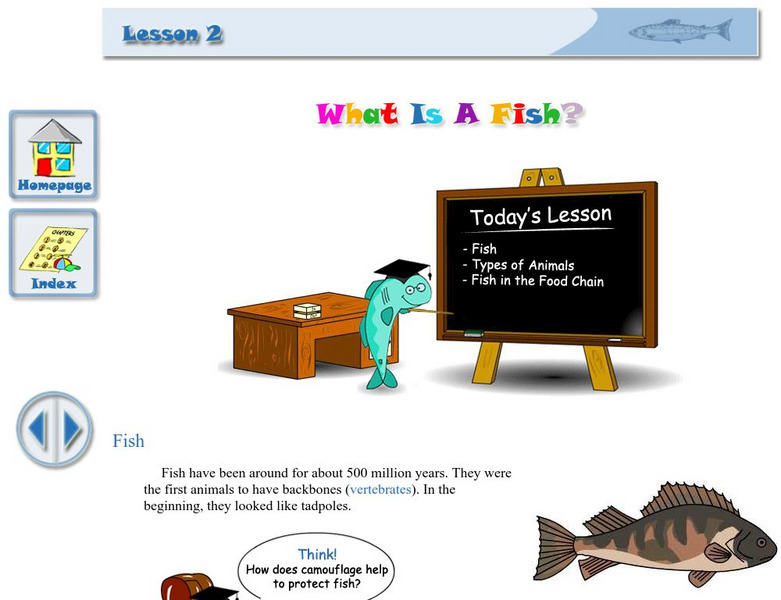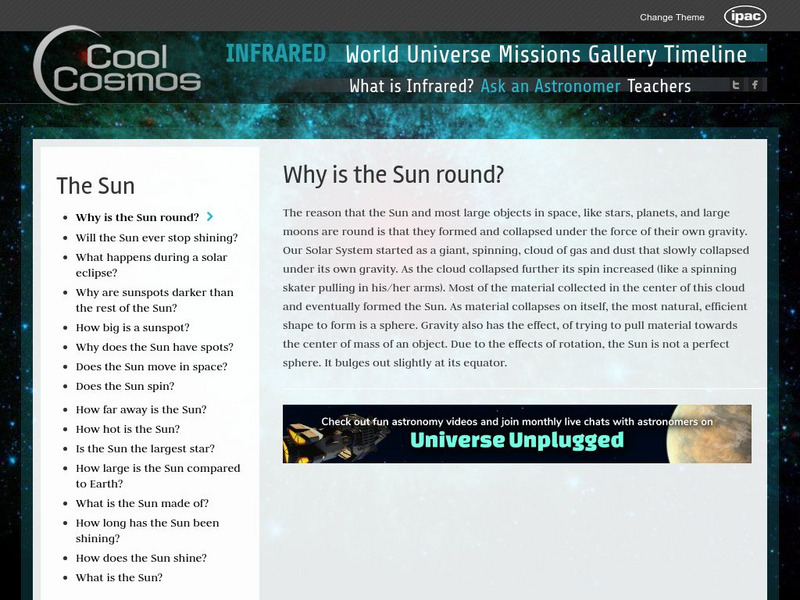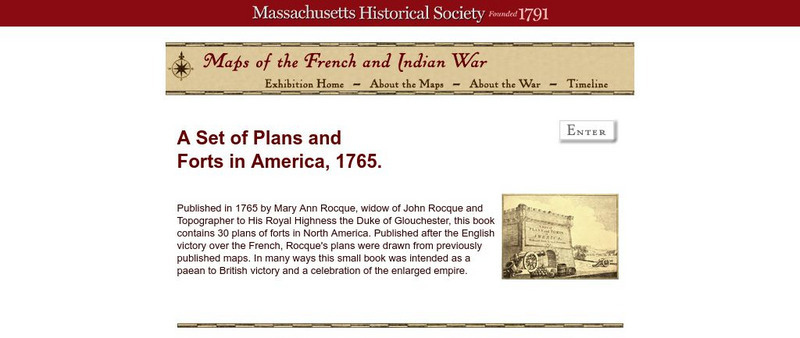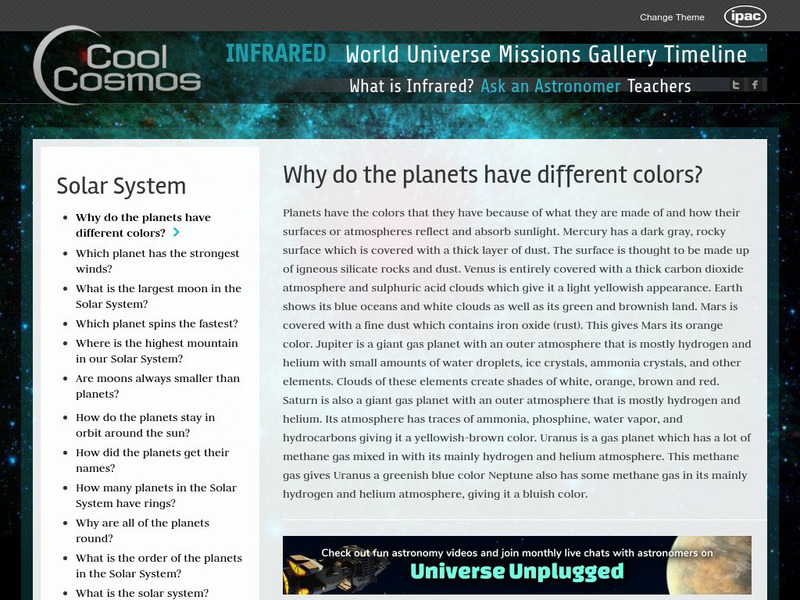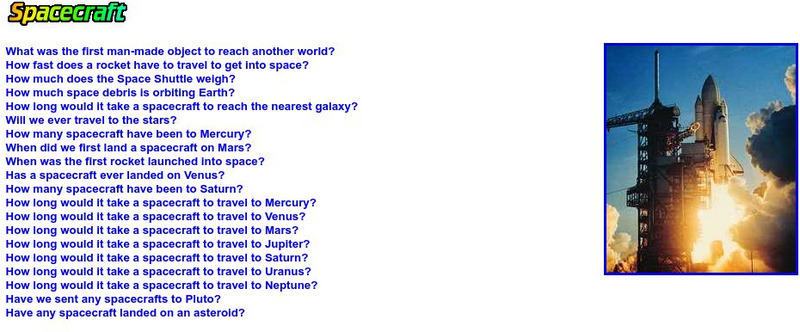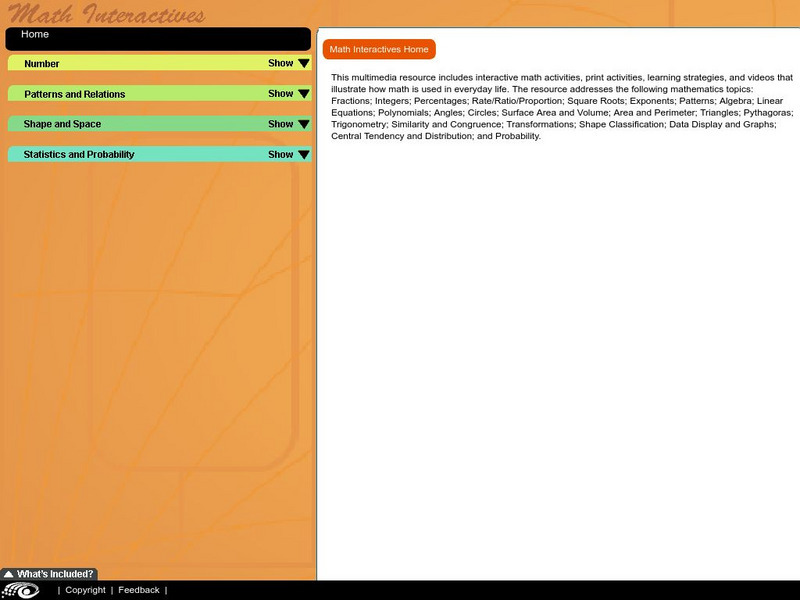Hi, what do you want to do?
Concord Consortium
Concord Consortium: Stem Resources: Describing Velocity
An interactive module where students record their ideas in response to questions, and read and manipulate graphs and charts while they learn about velocity-time graphs and position-time graphs.
Concord Consortium
Concord Consortium: Stem Resources: Dew Point
For this experiment, students work to find the dew point temperature in their classroom, or the temperature at which water would condense. Includes questions for students to respond to online. Requires free registration in order to save...
Library of Congress
Loc: Voices From Afghanistan
A beautiful exhibition reminds us of the extraordinary conditions that ordinary citizens must endure during times of war and conflict. Teachers write of their concerns, students write of bitter cold, citizens request food and aid. There...
Inland Fisheries Ireland
Something Fishy: What Is a Fish?
Something fishy site invites users to discover more about fish and fish types by learning how fish use their gills to breathe as well as where they fit in the food chain.
California Institute of Technology
Cool Cosmos: Sun Ask an Astronomer
Cool Cosmos provides the answer to many questions about the sun! Just find your question and click on it.
California Institute of Technology
Cool Cosmos: Ask an Astronomer
Resource compiles a list of most frequently asked questions about Mercury. Each question is linked to an astronomer's answer. Kids can explore many aspects of this wonderful planet.
California Institute of Technology
Cool Cosmos: Ask an Astronomer: Venus
Resource offers the answers to many frequently asked questions about Venus. Kids can click on the user-friendly question links to learn more about this amazing planet.
Massachusetts Historical Society
Massachusetts Historical Society: A Set of Plans and Forts in America, 1765
A digitized version of a book published in 1765 by Mary Ann Rocque, widow of John Rocque, topographer to the Duke of Glouchester. Contains images of the thirty plans of forts in North America. Published after the English victory over the...
Harry S. Truman Library and Museum
Harry S. Truman Library & Museum: Three Branches of Government
Interactive teaching unit for Grades 5-8 that helps to explain the three branches of government and the the balance of power. Topics covered include balance of government, how a bill becomes a law, the amendment process, the Legislative...
California Institute of Technology
Cool Cosmos: Ask an Astronomer for Kids
Cool Cosmos, a NASA-affiliated site, has compiled a list of frequently asked questions about the moon and linked them to answers provided by actual astronomers! Click back to the Cool Cosmos home to access the Spanish-language version.
California Institute of Technology
Cool Cosmos: Ask an Astronomer: Comets
Resource provides easy to understand information about comets. Click on the frequently asked question link to find out more about these mysterious celestial bodies.
California Institute of Technology
Cool Cosmos: Ask an Astronomer
Cool Cosmos and NASA have joined together to provide kids with the answers to their most frequently asked questions. Visit this site to learn more about asteroids.
California Institute of Technology
Cool Cosmos: Ask an Astronomer for Kids: Solar System
Resource presents information about the solar system through a list of most frequently asked questions. Click on each question and be transported to a wealth of knowledge about our solar system and the planets within it.
California Institute of Technology
Cool Cosmos: Ask an Astronomer
What is a star? How many stars can you see at night? How far away are the stars? Find the answer to these questions and more as Cool Cosmos and NASA astronomers answer the most frequently asked questions about stars!
California Institute of Technology
Cool Cosmos: Ask an Astronomer
Cool Cosmos and NASA help explore the world of galaxies! This site provides the answers to kid's most frequently asked questions.
California Institute of Technology
Cool Cosmos: Ask an Astronomer
Cool Cosmos and NASA help you uncover the mysterious Nebula. Kid's frequently asked questions are answered on this site thorugh easy to use links!
California Institute of Technology
Cool Cosmos: Ask an Astronomer
Have you ever wondered if aliens really exist? So do astrobiologists. Their job is to find out if life exists in space. Cool Cosmos and NASA provide the answers to the most frequently asked questions about this topic.
California Institute of Technology
Cool Cosmos: Ask an Astronomer for Kids! Spacecraft
Cool Cosmos makes it easy to learn more about spacecrafts through an easy to use list of kid's frequently asked questions. Just click on the question to enhance your understanding of this modern technological wonder.
California Institute of Technology
Cool Cosmos: Ask an Astronomer
Cool Cosmos identifies kid's frequently asked questions about the tools we use in space. Click on the links to find the answer to questions about space stations, telescopes, spectrometers and more!
California Institute of Technology
Cool Cosmos: Ask an Astronomer
Have you ever wanted to work with space? This site provides information about some of the interesting careers available for you. NASA and Cool Cosmos have compiled a list of kid's frequently asked questions about jobs dealing with space...
NASA
Nasa: Future Flight: Aeronautics Lab
This interactive activity takes students through a NASA aeronautics lab and shows them how spaceflights are designed. Learn about the process that scientists go through before a spaceflight, such as the propulsion and lift labs and...
Library of Congress
Loc: Everyday Mysteries: What Is the Strongest Muscle?
There are a variety of ways one can look at what might be the strongest muscle in the body. This site defines the various types of muscles and goes on to explain which would be considered the strongest.
Government of Alberta
Learn alberta.ca: Math Interactives: Rate/ratio/proportion (Object Interactive)
This highly interactive resource uses the backdrop of digital photography to explore equivalent forms of 3-term ratios. Printable activities, solutions, and learning strategies are also provided.
Government of Alberta
Learn alberta.ca: Math Interactives: Order of Operations (Object Interactive)
Students will be able to explore the order of operations in this highly interactive math resource from LearnAlberta.ca. Also included are print activities, solutions, learning strategies, and a math game.








